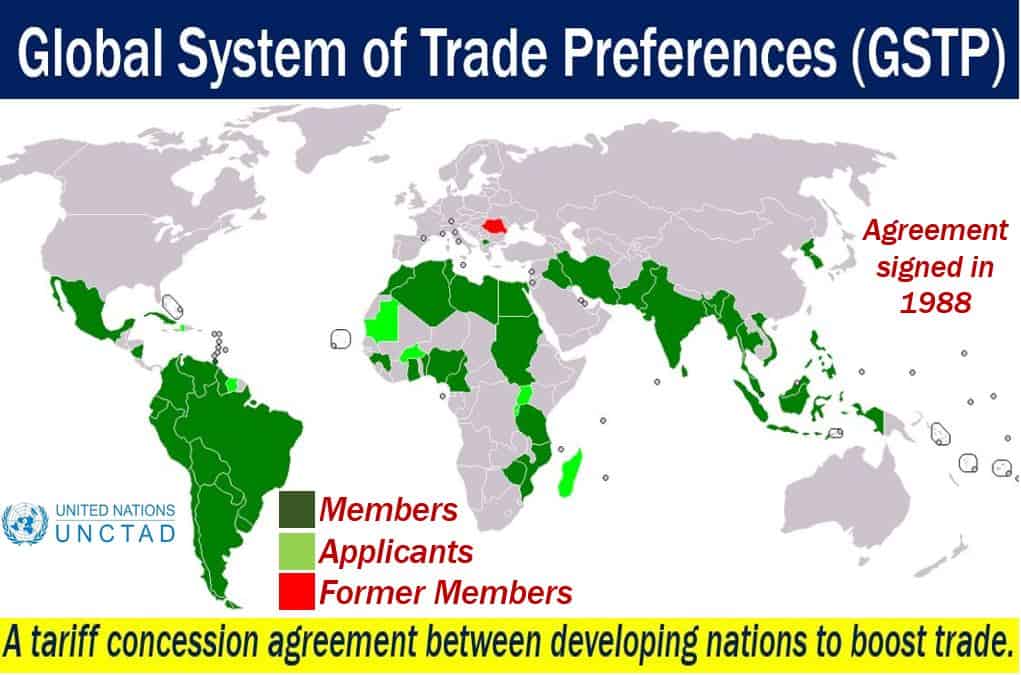The Global System of Trade Preferences or GSTP is a preferential trade agreement between developing nations. Developing countries signed the agreement on 13th April 1988. It aims to increase trade between developing economies in the framework of the UN Conference on Trade and Development.
In other words, GSTP is an international agreement aimed at boosting trade between emerging economies and less developed countries. In most cases, the preferential trade agreement consists of tariff concessions. Tariffs are taxes or duties that a country levies on imports.
The GSTP agreement came into force on 19th April 1989. The UN notified the WTO on 25th September 1989.
UN stands for the United Nations, and WTO stands for the World Trade Organization.
GSTP – initial and current members
Initially, the agreement consisted of nine members. They were Zimbabwe, Tanzania, Sri Lanka, Singapore, Nigeria, India, Ghana, Cuba, and Bangladesh.
Since 1989, dozens of other countries have also become GSTP member states. Uruguay, Uganda, as well as several other nations have also applied to join.
Romania and what was once Yugoslavia were once members. However, their memberships ceased when they joined the European Union.

To date, forty-three countries have acceded to or ratified the Agreement.
According to the United Nations Conference on Trade and Development:
“The Agreement on the Global System of Trade Preferences Among Developing Countries (GSTP) was established in 1988 as a framework for the exchange of trade preferences among developing countries in order to promote intra-developing-country trade.”
Seven members of GSTP are LDCs. LDC stands for Less Developed Country. They are Tanzania, Sudan, Myanmar, Mozambique, Guinea, Benin, and Bangladesh.
A less developed country does not have a lot of industrial activity. Its citizens also have very low incomes. Economists divide countries into three types. First, advanced economies; second, emerging economies; third, less developed countries.
LDCs need not reciprocate
LDCs have special needs, the United Nations points out. Therefore, they should receive preferential measures in their favor.
Additionally, the UN believes that the LDCs do not have to reciprocate on these special measures. In other words, if one country offers preferential terms, that LDC doesn’t have to respond with the same terms.
For example, let’s suppose that Singapore allows imports from Sudan to come into the country tariff free. That does not mean that Sudan has to do the same regarding goods it imports from Singapore.
